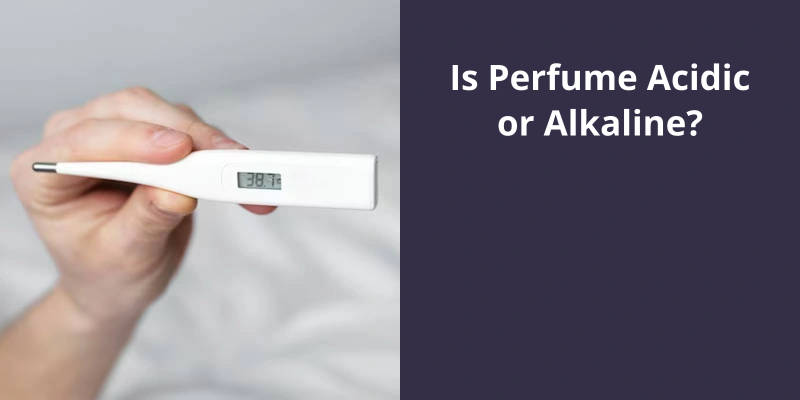Your chest might be hurting after spraying perfume due to a possible allergic reaction. Perfumes contain various chemical compounds and natural ingredients, and you could be sensitive or allergic to one or more of them. These allergens when inhaled can cause inflammation in your lungs and airways, resulting in chest pain or discomfort. It might also be a sign of asthma. If the pain persists, it’s best to avoid using that particular perfume and consult a medical professional.

Is Spraying Perfume to the Body Harmful?
Spraying perfume on your body may seem harmless, but there can be hidden risks. While immediate and irreversible damage from perfume use is rare, it’s important to be aware of potential issues. Allergies and skin sensitivities can be triggered by the chemicals present in perfumes, leading to uncomfortable symptoms such as chest pain and irritation.
Perfumes contain various synthetic and natural ingredients, such as aldehydes, musks, and floral extracts, that can cause allergic reactions in some individuals. These reactions can manifest as redness, itching, and in some cases, chest tightness or pain. If you experience these symptoms after applying perfume, it’s advisable to discontinue it’s use and consult a healthcare professional.
Additionally, repeated exposure to fragrance compounds can lead to sensitization, where the body becomes increasingly sensitive to the offending substance. This means that even a small amount of perfume can trigger an allergic response. Over time, this can cause long-term harm, affecting your overall health and quality of life.
It’s important to note that some individuals may be more susceptible to the negative effects of perfume exposure. People with pre-existing respiratory conditions, such as asthma or chronic obstructive pulmonary disease (COPD), may experience worsened symptoms when exposed to fragrance chemicals.
To minimize the potential risks, consider using fragrance-free products or natural alternatives, such as essential oils, which have a less chemical-laden composition. Testing perfumes on a small patch of skin before applying them to larger areas can also help identify any adverse reactions. Remember, it’s always better to err on the side of caution and prioritize your health when it comes to personal care choices and fragrance exposure.
Tips for Managing and Minimizing Perfume-Related Allergies and Sensitivities
- Avoid wearing perfumes or scented products
- Look for fragrance-free or hypoallergenic options
- Test perfumes on a small patch of skin before applying
- Choose natural or organic perfumes
- Opt for unscented household and personal care products
- Keep your environment well-ventilated
- Wash clothing and bedding regularly to remove fragrance residues
- Choose fragrance-free laundry detergents and fabric softeners
- Avoid areas with heavy perfume usage
- Consider using essential oils as a fragrance alternative
- Consult with a dermatologist or allergist for personalized advice
- Practice proper self-care and hygiene to minimize allergies
Identifying whether you’ve an allergic reaction to your perfume can be crucial for maintaining your well-being and avoiding potential health risks. Symptoms such as headaches, difficulty breathing, and skin rashes could indicate a fragrance sensitivity, while frequent sneezing upon exposure to strong scents might point towards a similar issue. Understanding the signs and signals of an allergic response will help you take the necessary steps to protect your health.
How Do You Know if You Are Allergic to Your Perfume?
Fragrance sensitivity is a common condition that affects many individuals. One of the most common symptoms of fragrance sensitivity is a headache. This can range from a mild discomfort to a severe, pounding headache that can last for hours. These headaches can occur immediately after exposure to a strong perfume or cologne, or they can develop gradually over time.
When the skin comes into contact with certain fragrances, it can become red, inflamed, and itchy. This can occur immediately after exposure or may develop over time with repeated use. If you notice any changes in your skin, such as the development of a rash or hives, after applying perfume or cologne, it’s important to discontinue use and seek medical advice.
In addition to these symptoms, some individuals with fragrance sensitivity may also experience sneezing or a runny nose. This can occur immediately after exposure to strong fragrances or may develop gradually over time.
It’s important to note that fragrance sensitivity isn’t the same as a fragrance allergy. Additionally, it may be helpful to seek medical advice in order to properly manage your symptoms and ensure your overall well-being.
Source: Fragrance Sensitivity: When Scents Cause Symptoms
In addition to alcohol, perfumes often contain various ingredients such as acids, fragrances, and preservatives that can also contribute to the stinging sensation. These substances can be harsh on sensitive skin and mucous membranes, leading to discomfort when sprayed directly onto the skin or in close proximity to your face.
Why Does It Sting When I Spray Perfume?
The sensation of stinging or irritation when spraying perfume can be attributed to the high alcohol content present in most fragrances. Alcohol-based perfumes typically contain ethyl alcohol, and some may consist of up to 95 percent. When this alcohol comes into contact with sensitive areas such as the eyes, it can cause discomfort and stinging.
The reason behind this reaction lies in the chemical properties of alcohol. Ethyl alcohol is known to have a drying effect on the skin, which can lead to irritation. Additionally, alcohol can disrupt the natural moisture balance of the skin, making it more susceptible to discomfort and stinging sensations.
Furthermore, the fragrance itself may contain certain ingredients that can also cause irritation. Some perfumes contain allergenic compounds or harsh chemicals that can trigger a reaction in sensitive individuals. This reaction may manifest as chest discomfort or a stinging sensation.
To minimize the potential for discomfort, it’s advisable to spray perfume at a distance from your body and avoid direct contact with sensitive areas like the eyes or chest. If you do experience chest pain or persistent discomfort after applying perfume, it’s important to consult a healthcare professional to rule out any underlying conditions.
Conclusion
It’s crucial to recognize that these symptoms may arise even if the scent itself can’t be detected, emphasizing the importance of awareness and caution when using fragrances. Understanding the potential health impacts of perfume exposure can help individuals make informed choices and take necessary precautions to protect their well-being.





